Antibiotics for Cats
Get the purrfect treatment for your cat's condition with our range of antibiotics, including amoxicillin, cephalexin, metronidazole, and more.
-
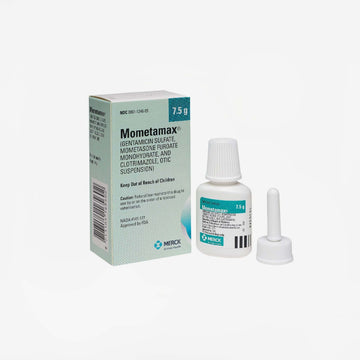
Mometamax Otic Suspension (Rx)
$36.99 / unit
Multiple options available
-
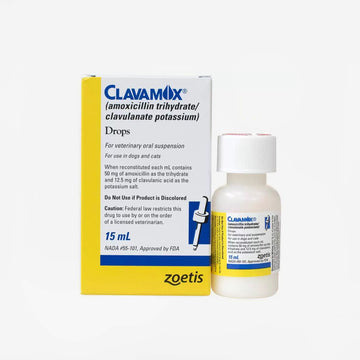
Clavamox (suspension) (Rx)
$39.99 / unit
-
Prescriptions without the expensive vet trip
Video chat with a vet and get new prescriptions and renewals — shipped free to you.
Get a prescription
-
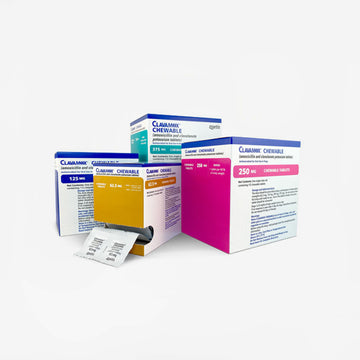
Clavamox (chewable tablet) (Rx)
$0.85 / unit
Multiple options available
-

Cephalexin (Rx)
$0.50 / unit
Multiple options available
-
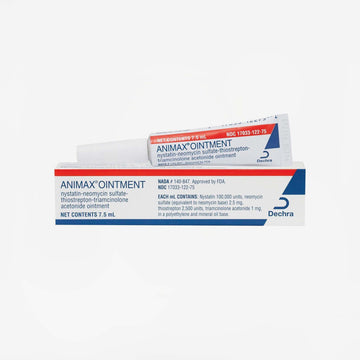
Animax Ointment (Rx)
$10.81 / unit
Multiple options available
-
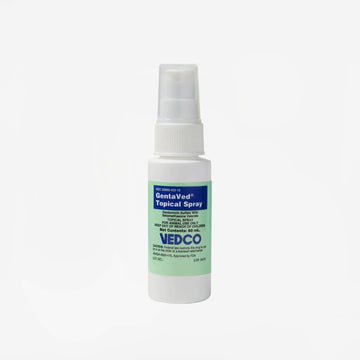
Gentamicin/Betamethasone Topical Spray (Rx)
$9.57 / unit
Multiple options available
-

Amoxicillin (Rx)
$0.45 / unit
Multiple options available
-
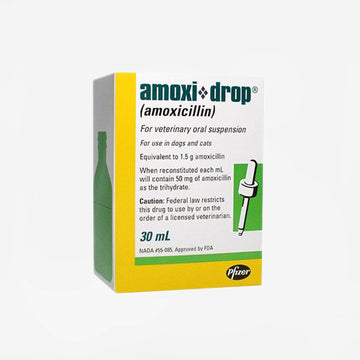
Amoxi-Drop 50 mg/ml Oral Suspension (Rx)
$19.06 / unit
-
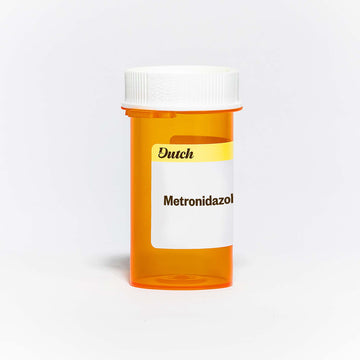
Metronidazole Tablet (Rx)
$0.45 / unit
Multiple options available
-
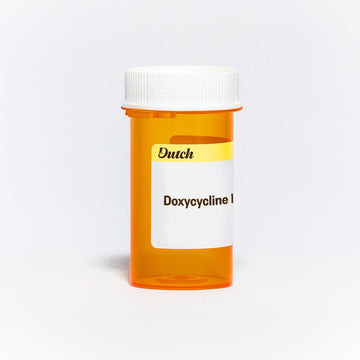
Doxycycline Hyclate Tablets (Rx)
$0.50 / unit
Multiple options available
-
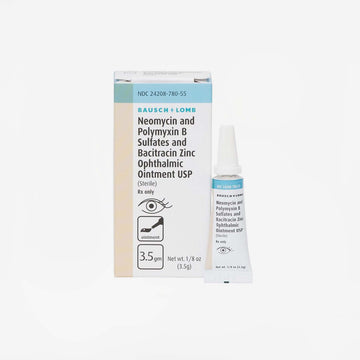
Neo-Poly-Bac Ophthalmic Ointment (Rx)
$14.99 / unit
-
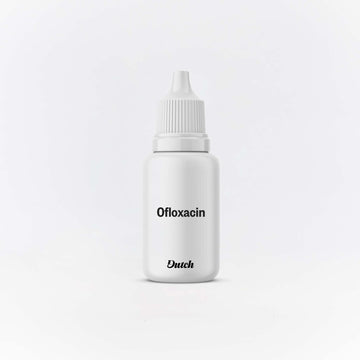
Ofloxacin 0.3% Ophthalmic Solution (Rx)
$14.07 / unit
Multiple options available
-

Terramycin Antibiotic Ophthalmic Ointment (Rx)
$32.99 / unit
-

Tobramycin 0.3% Ophthalmic Solution (Rx)
$16.28 / unit
-
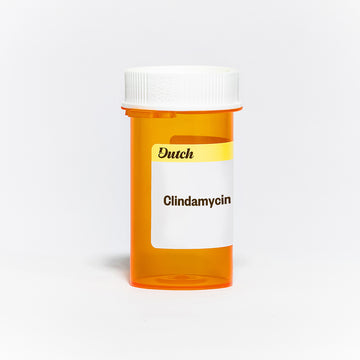
Clindamycin HCl Capsules (Rx)
$0.46 / unit
Multiple options available
-
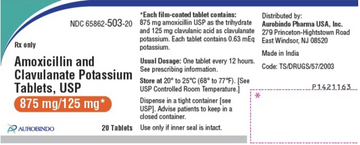
Amoxicillin/Clavulanate Tablets (Rx)
$11.99 / unit
-

Neo-Predef Powder (Rx)
$29.98 / unit
-
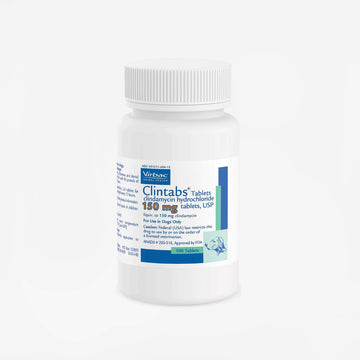
Clintabs (Clindamycin HCl) (Rx)
$0.69 / unit
Multiple options available
-
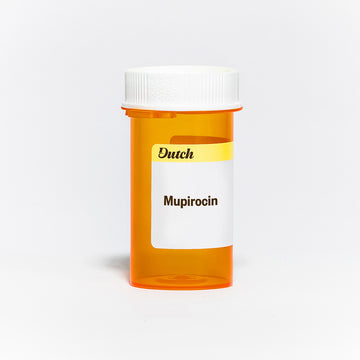
Mupirocin Ointment (Rx)
$14.50 / unit
Multiple options available
-

Baytril (enrofloxacin) Taste Tabs (Rx)
$1.16 / unit
Multiple options available
- 1
- 2
Frequently asked questions
What are antibiotics used to treat?
What are antibiotics used to treat?
Antibiotics for cats treat bacterial infections by killing the bacteria or inhibiting their growth. This allows the body's immune system to effectively eliminate the infection. Common bacterial infections treated with antibiotics in cats include:
- Respiratory infections: Antibiotics like amoxicillin treat respiratory infections in cats, including those affecting the upper respiratory tract or lungs.
- Skin infections: Antibiotics like cephalexin can treat bacterial skin infections like abscesses or wounds.
- Urinary tract infections (UTIs): Antibiotics for cats are often used to treat urinary tract infections.
- Gastrointestinal infections: Metronidazole is commonly used to treat bacterial infections in the GI tract, including those causing diarrhea or inflammation.
Can I get cat antibiotics over the counter?
Can I get cat antibiotics over the counter?
Antibiotics for cats are not available over-the-counter (OTC) and require a prescription from a licensed vet. This is because the inappropriate use of antibiotics can contribute to antibiotic resistance and lead to ineffective treatment of bacterial infections.
If you think your cat has any type of infection, consult with a veterinarian rather than attempting to self-diagnose and treat the infection with over-the-counter antibiotics for cats. Only a veterinarian can give you an accurate diagnosis and create a treatment plan, ensuring your cat's health and well-being.
How do I get a prescription for cat antibiotics?
How do I get a prescription for cat antibiotics?
Consult a Dutch vet from the comfort of your home. Dutch members get free shipping on all pharmacy orders and unlimited follow-ups to ensure your cat is on the right track.
Already have a prescription? We can fill that, too! Just go to our online pet pharmacy and choose the medication you need, and our partner pharmacy will work to send it directly to your doorstep.
What are the side effects of antibiotics for cats?
What are the side effects of antibiotics for cats?
Cat antibiotics are highly effective in treating bacterial infections, but like all medications, they can also cause side effects. Possible side effects of antibiotics for cats include:
- GI upset
- Allergic reactions
- Digestive issues
- Secondary infections
- Antibiotic resistance
How long does my cat need to take antibiotics?
How long does my cat need to take antibiotics?
How long your cat needs to remain on antibiotics depends on the type and severity of the infection, the antibiotic prescribed, and your cat's response to treatment. Most antibiotic courses last between 7 to 14 days. Always make sure your cat completes the full course of antibiotics as prescribed by your vet, even if their symptoms improve before the medication is finished.
Your vet will determine the appropriate duration of antibiotic treatment based on factors such as the type of infection, the cat's response to treatment, and any underlying health conditions. They may also recommend follow-up appointments to monitor your cat's progress and ensure the infection has been successfully treated.
If you have any concerns about your cat's antibiotic treatment or if you notice any side effects or worsening symptoms, it's essential to contact your veterinarian for guidance.




















